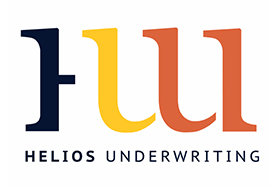Niger Mining Shake-Up: Insurance Risks Surge After Uranium License Revocation
In a major geopolitical development with wide-reaching implications for insurers and reinsurers, Niger’s military-led government has revoked the operating license of a key French uranium mining company. This unexpected move has rattled the mining sector and triggered alarm bells in the insurance industry due to heightened political and operational risks.
This article explores the insurance implications of Niger’s decision and outlines strategic solutions for insurers and reinsurers to mitigate emerging exposures in high-risk mining environments.
Political Uncertainty Fuels Niger Mining Insurance Risks
The revocation of the uranium mining license underscores the volatility of doing business in politically unstable regions. For insurance professionals, this development introduces a new layer of complexity.
1. Elevated Political and Operational Risk Exposure
Insurers underwriting mining operations in Niger now face increased risk, including:
Claims Surge Potential : Insurers may see a spike in claims related to halted operations, unfulfilled contractual obligations, or lost investments.
Underwriting Pressure : Existing risk models will need to be re-evaluated to reflect increased political instability, likely resulting in higher premiums or reduced capacity for new coverage.
2. Decline in Investor and Market Confidence
Foreign investors may hesitate to enter or continue operations in Niger. This eroding market confidence not only dampens mining investments but also affects the insurance market, which depends on active industry commitment for sustainable growth.
3. Increased Regulatory Scrutiny on Insurers
In response to such government decisions, regulatory frameworks may tighten, compelling insurers and reinsurers to strengthen their due diligence, compliance protocols, and documentation processes—thereby driving up operational costs.
Strategic Insurance Solutions for High-Risk Mining Markets
As Niger’s political landscape evolves, insurers and reinsurers must adapt their strategies to maintain resilience. Here are four actionable responses:
1. Strengthen Risk Assessment with Real-Time Analytics
Utilizing predictive analytics tools and AI-driven risk platforms enables insurers to monitor:
Political stability indices
Local community sentiment
Regulatory shifts and news cycles
Example: An insurer could use AI models to adjust policy terms or pricing dynamically in response to political developments, reducing exposure before a crisis occurs.
2. Create Diversified Risk Pools for Mining Operations
Developing bespoke policies that aggregate risk across multiple operators within the mining sector can help insurers absorb losses from individual incidents.
Example: A reinsurance pool could cover several uranium mining entities operating in West Africa, thereby balancing claims from a single project with collective premiums.
3. Leverage Local Expertise for Market Insight
Partnering with regional advisors and legal experts ensures that insurance products align with local law and political expectations.
Example: Collaborating with Niger-based consultants can inform policy wording to address government revocation risks and help structure claims to fit local arbitration norms.
4. Offer Flexible and Contingent Policy Structures
Flexibility is critical when insuring volatile markets. Insurers should consider offering coverage with adjustable premiums or shared retention models.
Example: A policy may allow premium reductions if a mining company successfully mitigates operational risks or meets compliance milestones set by the local government.
Conclusion: Navigating Niger Mining Insurance Risks with Agility
Niger’s revocation of a major French uranium miner’s license signals more than a local dispute—it reveals the systemic risks insurers face when operating in politically sensitive sectors. As geopolitical disruptions grow, the insurance and reinsurance industries must evolve accordingly.
By investing in dynamic risk models, partnering with local experts, and offering more flexible coverage, insurers can continue to support clients in high-risk territories while safeguarding their own portfolios.


